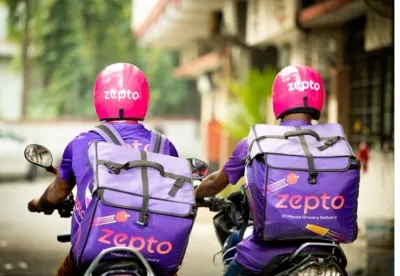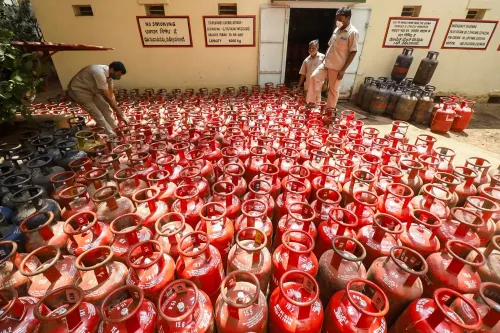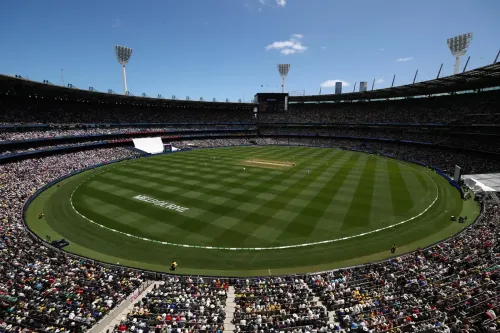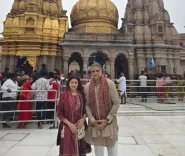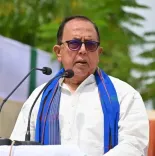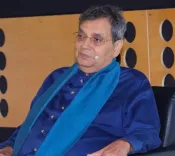Should We Celebrate Our Mother Tongue While Honoring Other Languages? – Maha CM Fadnavis
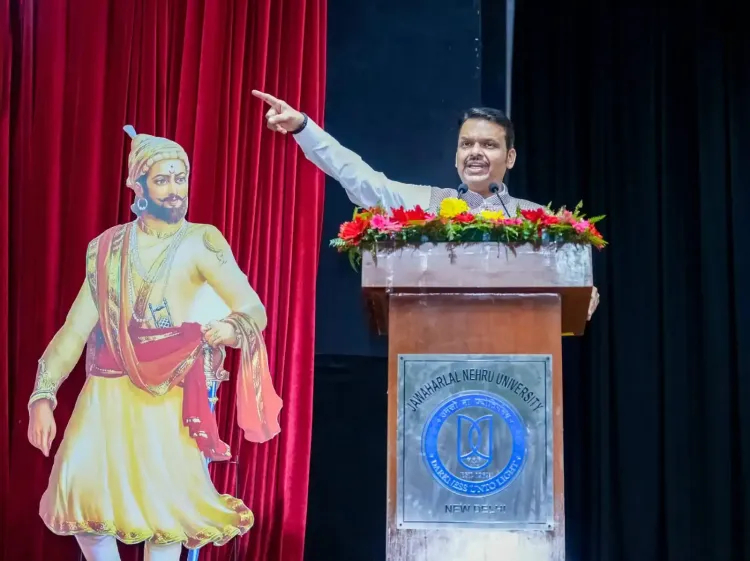
Synopsis
Key Takeaways
- Respect for all languages is crucial alongside pride in one's mother tongue.
- The establishment of study centers at JNU highlights the importance of Marathi literature and culture.
- Language-based violence will not be tolerated by the government.
- Encouraging Marathi literature is a priority for the state's education policy.
- Unity in diversity is essential for India's linguistic harmony.
New Delhi, July 24 (NationPress) In the midst of escalating tensions surrounding Marathi and Hindi, as well as incidents targeting non-Marathi speakers in Mumbai and beyond, Maharashtra Chief Minister Devendra Fadnavis stated on Thursday that while it is essential to take pride in one’s mother tongue, it is equally important to show respect for other languages.
He emphasized that language serves as a powerful tool for communication and is a wealth of knowledge accessible through this medium. CM Fadnavis made these remarks during the inauguration of the Shri Chhatrapati Shivaji Maharaj Strategic and Defence Special Studies Center and Kusumagraj Marathi Language, Literature and Culture Studies Center at Jawaharlal Nehru University in Delhi.
The Chief Minister expressed his approval regarding the initiation of studies focused on Chhatrapati Shivaji Maharaj's strategic insights and military tactics at a prestigious institution like JNU.
He remarked, “UNESCO has recognized 12 forts of Shivaji Maharaj as a World Heritage Site under the designation of 'Maratha Military Landscape'. These forts, built in the Sahyadris, Western Ghats, and coastal areas, showcase Shivaji Maharaj's foresight in identifying foreign threats and inspired the Marathas to raise their flag throughout India. The world continues to appreciate his military strategies, exemplifying the essence of strategic prowess that led to the establishment of Swarajya.”
CM Fadnavis noted that Chhatrapati Shivaji Maharaj instilled a sense of victory among the Marathi populace and expressed gratitude to Prime Minister Narendra Modi for designating Marathi as a classical language.
“Marathi is an ancient language. The royal insignia is visible on our naval flag, and now it has also been recognized in Delhi. Today, Marathi literature and theatre stand out as exemplary. The language that has nurtured theatre is indeed Marathi. He advocated for enhanced research on the Marathi language at all universities,” the Chief Minister stated.
He further reiterated that Marathi is an ancient language and its recognition as a noble language signifies royal endorsement. He mentioned that Marathi literature has significantly enriched the nation and highlighted that the installation of an equestrian statue of Chhatrapati Shivaji Maharaj on the JNU campus will serve as an inspiration for sacrifice and social service towards the country.
Later, he informed reporters, “Our conflict is not between Marathi and Hindi. Rather, along with Marathi, other Indian languages must also be embraced. It is natural to advocate for the Marathi language in Maharashtra; this is not objectionable.”
He cautioned that any acts of violence related to language will not be tolerated, stating, “We have acted against such incidents in the past, and any future attempts will be met with government intervention.”
The Minister of Industry and Marathi Language, Uday Samant, remarked that the establishment of the Marathi Study Center at JNU is a historic achievement, adding that a village of Marathi literature will be established in Kashmir and Marathi Brihan Mandals will be set up abroad. He also mentioned his commitment to encouraging students from Maharashtra to pursue admission at JNU by inviting them to the Vishwa Marathi Sammelan in Nashik.
Jawaharlal Nehru University Vice Chancellor Prof Shantishree Pandit underscored the significance of Marathi literature, theatre, and poetry. She announced the national dialogue program ‘Sindhudurg Samvad’ and noted that JNU is a leading university grounded in equality, quality, and innovation. Referring to the efforts to promote the study of 50 Indian languages under the National Education Policy 2020, she encouraged Marathi students to enroll at JNU.


